Have some Christians gotten a little too comfortable worshiping at home in their pajamas?
Trey Morgan asks that half-serious question about livestreamed services.
“You honestly have to wonder,” said Morgan, senior minister for the Childress Church of Christ, a thriving Texas congregation halfway between Amarillo and Wichita Falls.
When COVID-19 prompted the cancellation of in-person assemblies in March 2020, countless churches turned to internet platforms such as Facebook, YouTube and Zoom to connect and encourage members.
Some congregations made the “rip and sip” communion cup — a small wafer contained atop a tiny cup of grape juice — available for members to pick up during the week. Other Christians bought juice and prepared their own unleavened bread.
Two years later, most congregations have reopened their buildings, but overall attendance remains down from previous levels — often by as much as one-third to one-half, a Christian Chronicle survey found.
While some leaders worry about Christians forsaking physical gatherings, a majority of those surveyed said they see benefits to maintaining virtual options — especially for the immunocompromised, shut-ins and traveling members.
“My husband and I are elderly and sickly, so we really appreciate being able to participate in worship with our congregation via YouTube,” said Bettye Garrett, a member of the Rolling Hills Church of Christ in Mt. Sterling, Kentucky.

“Otherwise, we would miss worship most of the time,” she added. “Personally, it will never replace in-person worship. I especially miss singing.”
Morgan, the Texas preacher, describes livestreaming as an excellent tool for outreach, in addition to its benefits to members.
At the Childress church, average attendance has declined just slightly since the coronavirus became a concern. It’s now about 350, down from 375, Morgan said.
“We’ve added several new families to our church in the past year who began watching online,” he said. “We will continue to livestream for the foreseeable future.”
Still, the minister worries about members who have stayed away for reasons other than health concerns.
“I’m afraid at times we may make it too easy for people to skip fellowship and just sit at home if they don’t want to get up and around,” Morgan said. “Church and people were created for fellowship. While online worship is convenient and necessary, it can also be tempting when it comes to being lazy.”
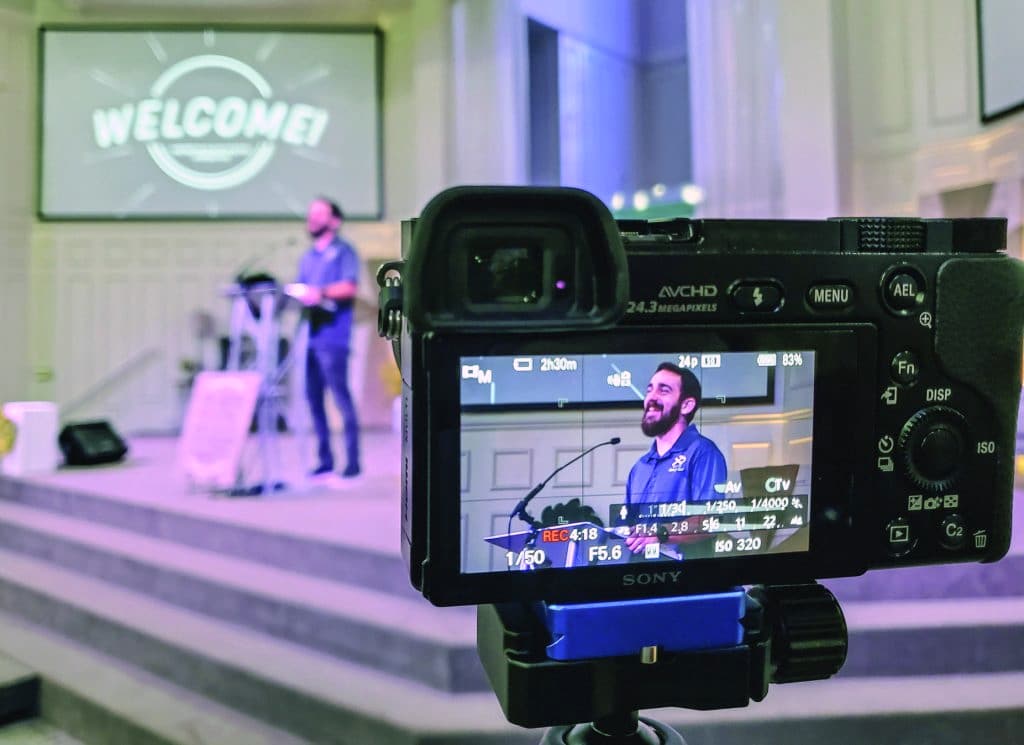
One church’s livestreaming experience
Elsewhere in the Lone Star State, online services for the Tolar Church of Christ, about 45 miles southwest of Fort Worth, began with elder Wes Ives and his wife, Lisa.
“The first few months, we actually filmed from a tripod and my iPhone,” said Lisa Ives, one of about 250 readers who responded to the Chronicle’s online survey. “Now we have a great system on our computers at the building that works well for our small congregation.”
Ives said her family usually chooses to attend church in person. After all, her husband typically leads worship.
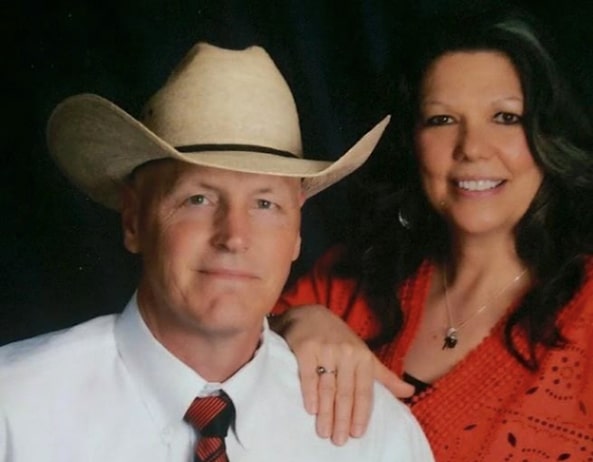
At the same time, Wes Ives is a firefighter and sometimes must work on the Lord’s Day.
“So it has been wonderful for him to be able to worship via livestream when he is on Sunday shift at the fire station,” his wife said.
“We also travel and camp with a group of church family,” she added. “In addition to having church together at the campsites, we can also watch the livestream of our home congregation to worship together.”
Ives said her parents, Buck and Roberta Chisolm, survived COVID-19 but developed major complications and “are basically homebound now.”
“It has been wonderful to have them be able to worship from home and still feel connected and safe,” she said. “It makes missing the fellowship a bit more bearable.”
Since returning to in-person worship, the Tolar church has a typical attendance of 90, she said. That’s down from 150 before the pandemic.
Ives said she’s encouraged by those watching online “who might not have ever come to an in-person service.”
But like Morgan, she misses fellow Christians who haven’t returned.
“How can we encourage folks to fill the pews as well?” Ives said. “It can be disheartening to see members who won’t come in person but who are willing to go to work in person, attend social/sporting events and visit other public places.
“But even those concerns and questions,” she added, “shouldn’t hinder us from continuing to use technology to ‘go into all the world and preach.’”
‘When Christians assemble’
Even before COVID-19, overall church attendance was declining, noted Jeff Lovitt, minister for the Morganton Church of Christ in North Carolina.
The pandemic simply accelerated that trend, Lovitt said.
“Livestreaming can have the negative effect of causing people to be separated from the church and its ministries, thinking that ‘watching’ from the comfort of their homes is enough,” he said. “For these people, this is disturbing. Church is supposed to be when Christians assemble.
“But,” he added, “if it can be used as an outreach for the unchurched, I think that livestreaming has value.”
Moreover, online worship blesses members who are chronically ill or can’t drive at night, said Kathleen Trigg, a member of the Wesley Chapel Church of Christ in Florida.
“We thank the Lord for the technological advances that let us gather virtually when it isn’t safe to be face to face,” Trigg said. “But the platform we use doesn’t work well with singing, and you can’t hug each other through a screen.
“We are all relieved and thrilled when we can gather again, even if masked and distanced,” she added. “Virtual worship is better than isolation, but it cannot compare with being physically together to worship God.”
For Carla Dean Thompson, a missionary to Kenya who teaches the Bible to women and trains leaders to work with children, livestreaming has provided a welcome connection to supporting congregations in the U.S.
She enjoys participating in services — from afar — with the Oldham Lane Church of Christ and Southern Hills Church of Christ, both in Abilene, Texas, and the North County Church of Christ in Escondido, California.
“I am thankful that we have good preaching in the church I attend and work with in Nairobi,” Thompson said. “It is still good to stay connected and get teaching from the U.S.A.”
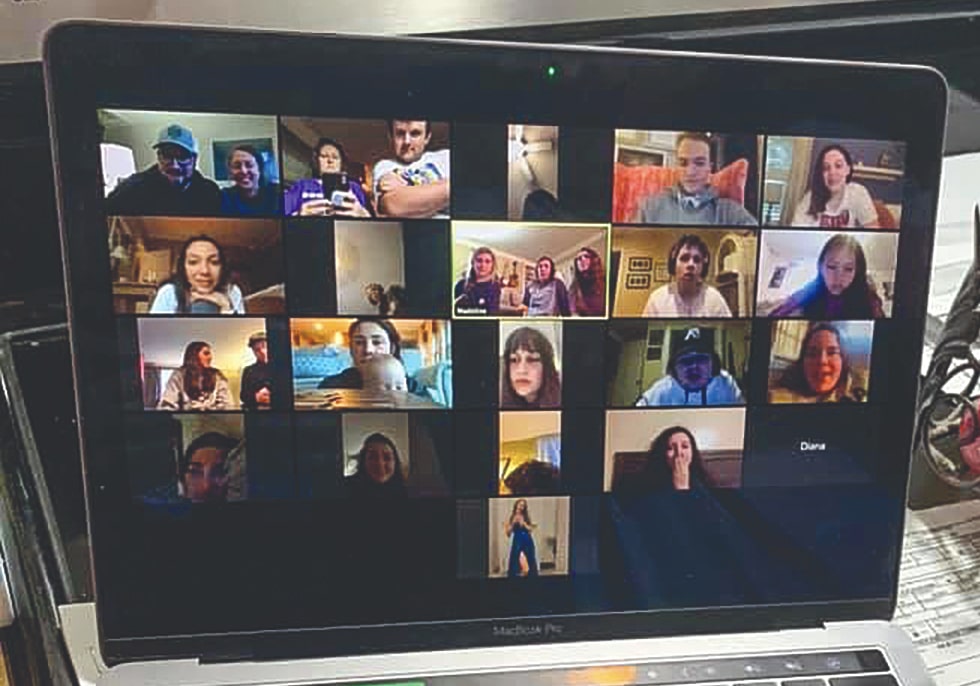
Unplugging vs. plugging in
Some congregations are unsure whether they will continue livestreaming.
That’s the case for the Main Street Church of Christ in Walnut Ridge, Arkansas.
“I know some churches are embracing this technology and hoping it will enhance the involvement and the spreading of the Gospel,” said Rob Combs, the Main Street church’s minister. “We all need to be in prayerful consideration of what is best for the future of the church. We are concerned this could continue a decline in local church membership and involvement. Time will tell.”
Other leaders said they’d love to find ways to enhance their congregation’s internet presence.
“Online church can become consumer-driven, and I would like ideas on how to connect members relationally online,” said Joseph Neal, minister for the Magnolia Center Church of Christ in Riverside, California.
Some churches hope to develop more formal ministries for the “virtual congregation.”
“We believe there will always be people who are not likely to attend a physical church but who will feel like they are a part of it because they watch regularly,” said Donna Fore, finance manager for the Memorial Church of Christ in Houston. “We want to engage them and be sure their needs are being met.”
Ken Truax, an elder of the East Independence Church of Christ in the Kansas City, Missouri, area, expressed a similar sentiment.

“We are concerned about how to involve all of our congregation post-shutdown, whether they worship in person or online,” Truax said. “And we realize that we have a great opportunity to engage with those who are worshiping with us online who were not part of our congregation pre-shutdown. So we are working on strategies for both.”
Still other leaders stressed the importance of paying close attention to God’s direction.
The Bayview Church of Christ in San Francisco has met only online for nearly two years, but its minister, Rodney Stovall Jr., said the congregation hopes to resume in-person services soon.
“I believe we need to be very open-minded about why God has allowed us to go through this,” Stovall said of the pandemic. “We need to be quiet enough to hear him, and we need to be alert enough to see the answers.”
This article originally appeared at The Christian Chronicle.
 Bobby Ross Jr. is a columnist for Religion Unplugged and editor-in-chief of The Christian Chronicle. A former religion writer for The Associated Press and The Oklahoman, Ross has reported from all 50 states and 15 nations. He has covered religion since 1999.
Bobby Ross Jr. is a columnist for Religion Unplugged and editor-in-chief of The Christian Chronicle. A former religion writer for The Associated Press and The Oklahoman, Ross has reported from all 50 states and 15 nations. He has covered religion since 1999.





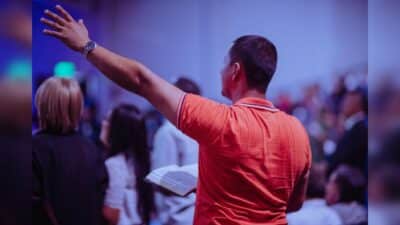
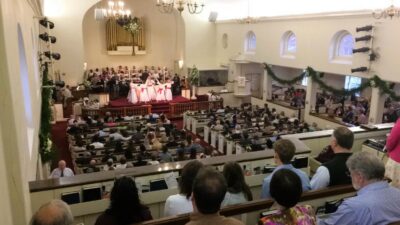
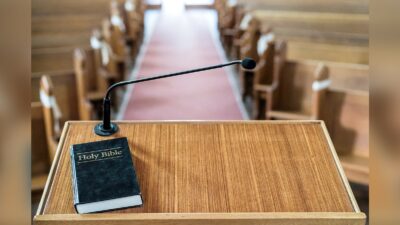












6 Responses
Most of us who started community home churches/ministries, over the past 20 months, will continue to do so without any pastors/churches that shut down any worship, out reach, or assistance for the at risk during the lock down. They said listen to Ceaser, stay home, we are powerless to serve God during this difficult time, and you are on your own until Ceaser tells us differently.
People who had been taking pastors/churches at their word most of their lives, really opened/read their Bibles (alone and in groups) for the first time in years during the lock down. They have discovered the churches/pastors do not practice what they preach or they expect the congregation to live a standard they themselves do not follow.
The churches are reaping what they sowed, are now complaining because their inaction’s woke up a lot of the congregations about who they truly serve, and people are no longer buying whatever the pastors are now selling.
The tone deaf, dismissive attitude in this article and that I’m hearing from many church members on social media and in person is one of the many reasons people left their pre-pandemic churches. They aren’t all still at home worshiping online, many attended different churches virtually and found better ones they now attend in person.
“ …gotten a little too comfortable worshiping at home…”
“…forsaking physical gatherings…”
“…we may make it too easy for people to skip fellowship and just sit at home if they don’t want to get up and around…”
“….online worship is convenient and necessary, it can also be tempting when it comes to being lazy…”
Asking questions about why they didn’t come back to those particular congregations and listening to the answers rather than automatically bearing false witness against people would be a good start. That’s a character trait lacking in many evangelical (and probably other types of) churches.
Some cold hard realities for not attending their pre-pandemic church after lockdown:
1. Many people left churches that became primarily political rather than primarily Christian.
2. Some had been in churches that are spiritually unhealthy. (See any article or podcast here at this website for examples.)
3. Lockdown and online worship made them realize they never lost a sense of church community because their pre-pandemic church never had one.
4. Many attended out of habit or cultural reasons, not out of the devotion that results from regeneration, because they have never been regenerated.
I definitely agree with Lisa on most of what she has said, especially reason #4, for why people haven’t returned to Church. I think also, Churches need to honestly evaluate their ministry and pray for the Lord’s guidance. Amazingly, we’ve lost some people and have seen a new group come in. Perhaps God is simply telling us that the Pandemic is an opportunity for a fresh start for many Churches.
I agree and appreciate Lisa’s response. The assumptions about why people do (or do not) attend sessions in person run rampant in this article and in the attitudes, threads, and comments on this topic.
A good way to handle this is for believers – those in ministry and in congregations – to personally reach out. Instead of assuming, talk to those who attend live AND those who attend virtually. Inquire about their needs, interests, and prayer requests.
In addition to helping care for a mom who is immunocompromised, I also picked up a second job (to help pay medical bills) that often required me to work right before or after services. I am grateful for the ability to log into online services with my mom, or to listen to the sermon while commuting to my job. I regularly pray and thank God for how technology has made such access possible.
It saddens me that there are so many of my fellow believers making assumptions on why I’m not in service, and turning their noses up at increased accessibility to praise and worship. Many of us need it; it is our spiritual lifeline.
I agree with you, Lisa. Well said.
My mother in law was living with me while she was dying of cancer and she would watch services from Duke Chapel every Sunday. This was before Covid. I still remeber the tears of gratitutde she had for the programs which brought her much comfort in her final days.